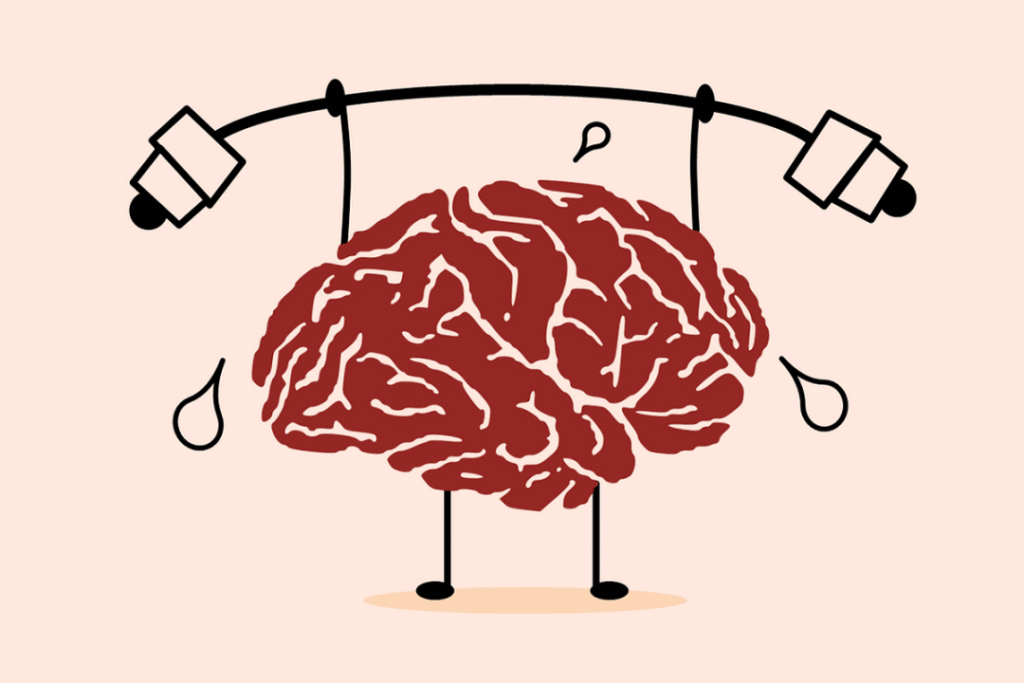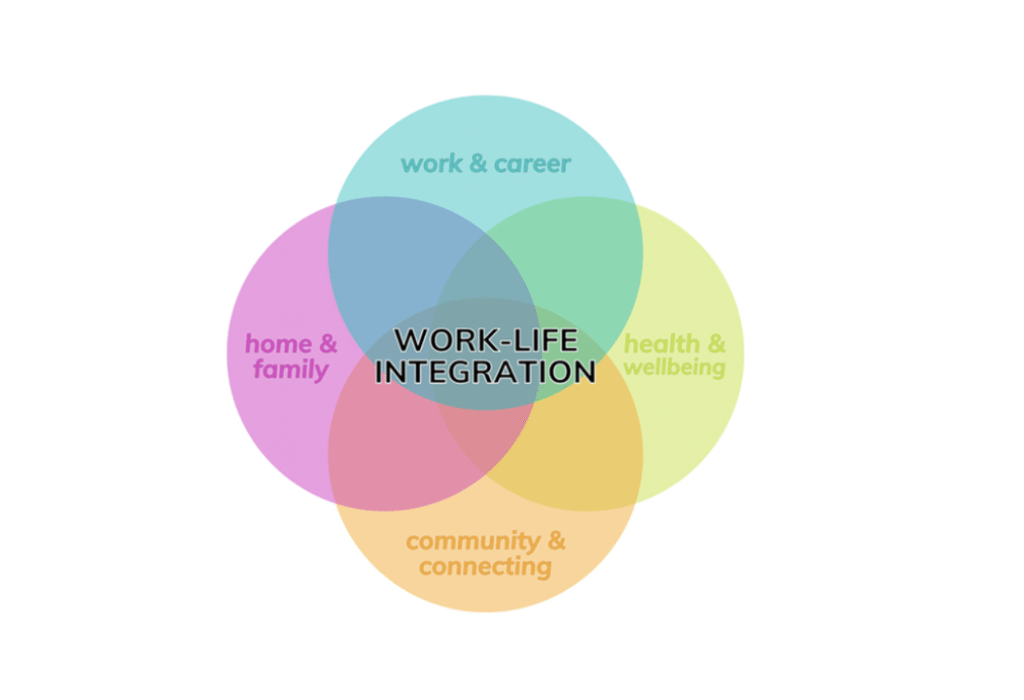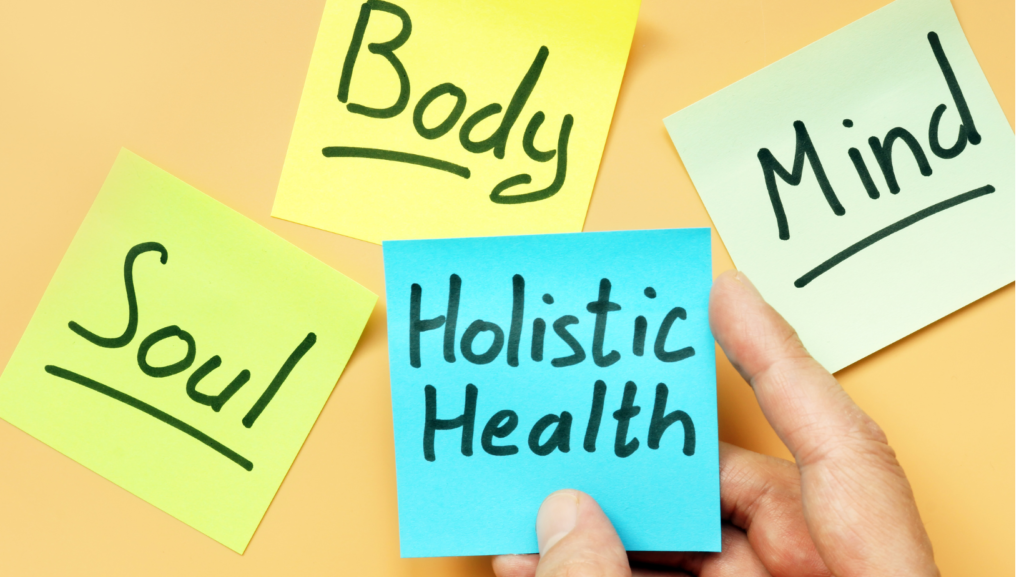Introduction: What is Holistic Health?
In the modern world where life moves at lightning speed, holistic health is becoming more than just a trend—it’s a necessity. Unlike conventional healthcare, which focuses on treating diseases, holistic health views the body, mind, and spirit as one interconnected system.
The philosophy of holistic wellness emphasizes that true health cannot exist without balance—physically, mentally, emotionally, and spiritually. It’s about understanding how lifestyle, nutrition, emotions, environment, and thoughts influence our overall well-being.
The Mind-Body Connection: Science Behind Holistic Living

Your mind and body constantly communicate. Every thought, emotion, and feeling triggers a physical response. For example, stress or anxiety can cause headaches, digestive problems, or even weaken immunity. On the other hand, positive emotions like gratitude and happiness can strengthen your heart, boost hormones like serotonin, and improve sleep quality.
Scientific research supports this connection. Studies show that chronic stress increases cortisol levels, leading to fatigue, inflammation, and hormonal imbalance. Practices like meditation, deep breathing, and yoga help lower cortisol and improve overall health.
The mind-body connection teaches us that our health is not only dependent on what we eat or how we exercise—but also on how we think, feel, and react to life’s challenges.
Key Pillars of Holistic Health
1. Physical Wellness
Physical wellness is not just about exercising; it’s about respecting your body.

- Eat whole, nutrient-dense foods—fresh fruits, vegetables, whole grains, and proteins.
- Stay hydrated and maintain regular sleep cycles.
- Engage in physical activities that you enjoy—walking, yoga, dancing, or swimming.
Your body is your foundation. When nourished properly, it supports all other aspects of holistic health.
2. Mental Fitness
Mental fitness is as important as physical fitness. It involves developing clarity, focus, and emotional resilience.
To strengthen mental fitness:

- Practice mindfulness and meditation daily.
- Write down your thoughts through journaling.
- Engage in creative or learning activities that stimulate your brain.
- Set realistic goals and manage time effectively to avoid burnout.
Mental fitness helps you maintain emotional balance and prevents conditions like anxiety, depression, or chronic stress.
3. Emotional and Spiritual Wellness

Emotional health means acknowledging and expressing your feelings instead of suppressing them. Surround yourself with people who bring positivity and compassion.
Spiritual wellness doesn’t always mean religion—it’s about connection, purpose, and peace. Practices like gratitude journaling, prayer, spending time in nature, or simply being silent can nurture your spiritual growth.
4. Nutrition and Lifestyle
Food is medicine. A holistic diet supports both physical and mental health.
Include:

- Omega-3 fatty acids for brain health (flaxseeds, walnuts, fish)
- Antioxidants from colorful fruits and vegetables
- Herbal teas for relaxation and digestion
Avoid excessive caffeine, refined sugar, and processed foods. Pair your nutrition with healthy habits—adequate sleep, digital detox, sunlight exposure, and meaningful social connections.
Benefits of Holistic Living
Embracing holistic health creates harmony across all dimensions of life.
Here’s what you can expect:

✅ Reduced Stress: Mindfulness and deep breathing help calm the nervous system.
✅ Improved Immunity: Balanced nutrition and emotional stability enhance resistance.
✅ Better Sleep: Natural relaxation methods promote deep, restorative sleep.
✅ Enhanced Focus: Mental clarity improves productivity and creativity.
✅ Long-term Wellbeing: Instead of quick fixes, holistic health promotes sustainable results.
Practical Ways to Improve Mind-Body Balance
Here are simple, actionable steps to begin your mind-body wellness journey:
- Start your morning with mindfulness: A 5-minute gratitude or meditation session sets a calm tone for the day.
- Eat with awareness: Avoid eating while distracted. Focus on the taste, texture, and smell of your food.
- Move daily: Even light stretching or a short walk helps release tension.
- Breathe consciously: Practicing slow breathing activates relaxation and reduces anxiety.
- Digital detox: Spend time offline—connect with nature or engage in hobbies.
- Sleep hygiene: Keep your bedroom dark, cool, and screen-free before bed.
- Positive self-talk: Replace self-criticism with kindness and acceptance.
Small, consistent changes in your daily habits build a stronger mind-body connection over time.
Holistic Therapies and Practices
Holistic health integrates a range of natural and alternative therapies, such as:
- Yoga & Meditation: Improve flexibility, emotional control, and inner peace.
- Ayurveda: Balances the body’s energies (doshas) through diet and herbs.
- Acupuncture: Restores energy flow and alleviates pain or stress.
- Reiki & Energy Healing: Helps release emotional blockages.
- Sound Therapy & Aromatherapy: Stimulate healing and relaxation through vibration and scent.
These therapies complement modern medicine by addressing root causes rather than just symptoms.

The Role of Mindfulness in Mental Fitness
Mindfulness is the practice of being present without judgment. It helps you notice thoughts and emotions without letting them control you.
When practiced regularly, mindfulness:
- Lowers anxiety and depression levels
- Improves emotional regulation
- Increases focus and attention span
- Enhances compassion and empathy
Simple activities like mindful breathing, journaling, or even mindful walking can transform your daily experiences into moments of awareness and gratitude.

Why Mental Fitness is the Future of Health
With rising stress, burnout, and digital overload, mental fitness is becoming a core component of preventive healthcare.
Organizations, schools, and healthcare systems are integrating mental fitness programs to promote productivity and resilience.
Being mentally fit means not only coping with challenges but thriving despite them. It’s about adaptability, optimism, and emotional intelligence—qualities essential for a balanced and fulfilling life.
Conclusion: Building a Holistic Lifestyle

Holistic health is not a one-day transformation; it’s a lifelong journey of self-awareness and balance.
When you align your body, mind, and soul, you unlock a state of wellness that radiates from within.
Start small—eat consciously, move joyfully, breathe deeply, and think positively. The more you practice, the stronger your connection becomes between your thoughts, emotions, and physical health.
Holistic living isn’t about perfection—it’s about balance, awareness, and growth.
FAQs
1. What is the main goal of holistic health?
The main goal of holistic health is to create harmony between the mind, body, and spirit. It focuses on identifying and addressing the root causes of imbalance rather than only treating symptoms.
2. How can I improve my mental fitness daily?
You can boost mental fitness through regular mindfulness practices, journaling, proper sleep, positive affirmations, and engaging in activities that challenge your brain—like reading, puzzles, or learning new skills.
3. Can holistic health replace modern medicine?
Holistic health does not replace modern medicine; it complements it. While medical treatments address acute conditions, holistic practices support long-term wellness and prevent diseases by promoting balance and self-awareness.
